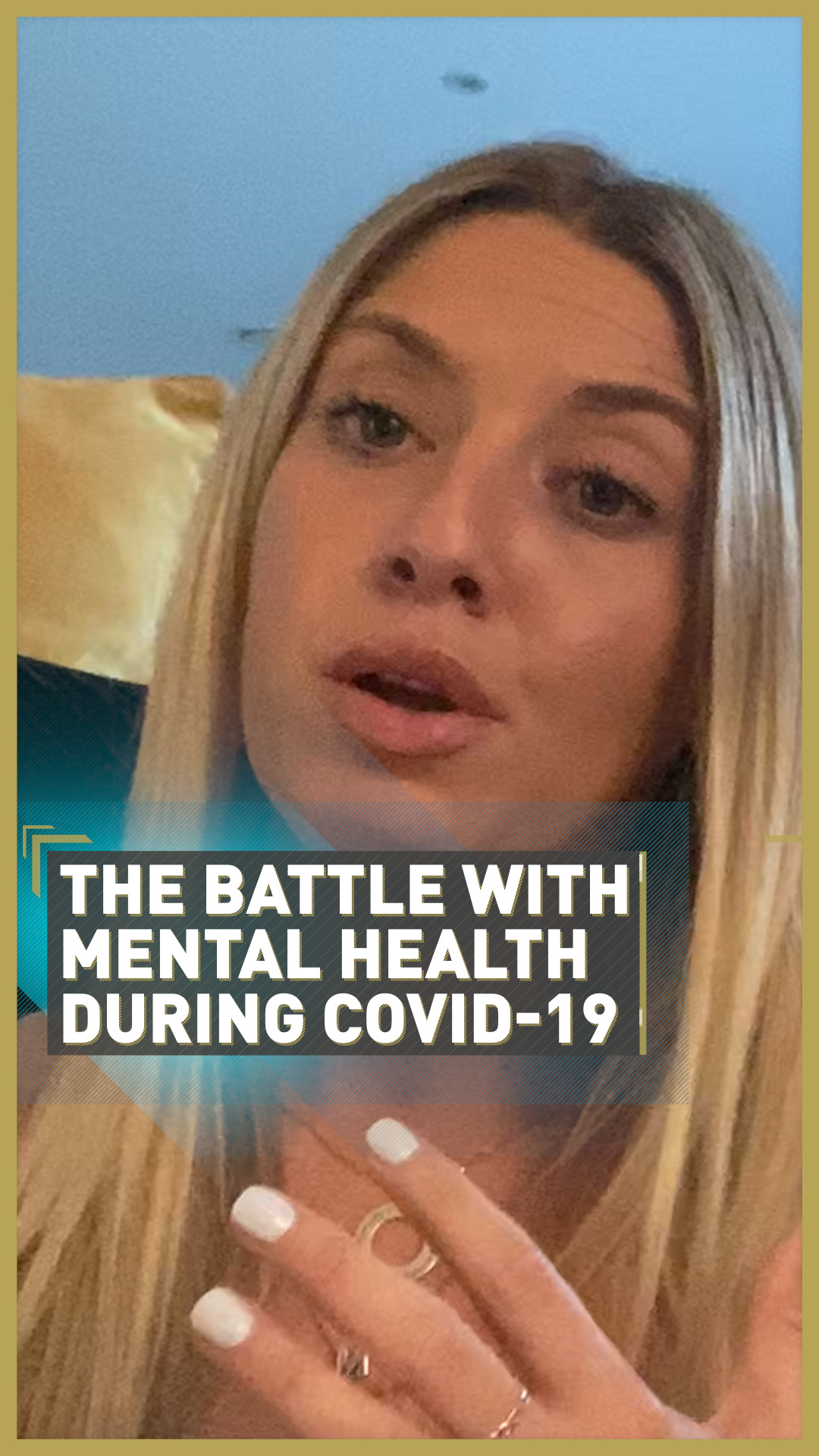03:45

COVID-19 has been a difficult time for most. From not being able to see friends and family for months to some people losing their jobs.
One thing that has affected many people is their mental health. The struggle for the brain to come to terms with all of these sudden changes has been tough.
In the UK, an Office for National Statistics (ONS) survey showed that 19.2 percent of adults reported some form of depression during June 2020, compared with 9.7 percent from June 2019 to March 2020.
For Abbi Summers, who has never previously struggled with her mental health, this period has been exceptionally challenging.
In case you missed it:
· 'Vaccine nationalism' can damage everyone's health, WHO warns
· What COVID-19 solutions and innovations have impressed you most? Let us know
Grandad's death
"I've never been someone who suffered with depression, anxiety, panic attacks until lockdown. And the more the more I thought it would go away – the feelings I was having of being so miserable and claustrophobic – the more it didn't go away," she said.
Abbi’s grandmother contracted COVID-19 at the beginning of the country’s nationwide lockdown and spent just over a day in hospital before being discharged back home.
While her grandfather was constantly by her side during the recovery, he also contracted the virus. But because he suffered with asthma, it affected him much worse.
"They put him on a ventilator on the Wednesday, so two days after he initially went into hospital, and by Saturday 4 April, he was dead and he died of COVID-19. He died on his 79th birthday," Abbi said.
Pure frustration
This experience, on top of not being able to go to the gym, which she loves doing, left Abbi in a dark place with "no reprieve" or "outlet."
"I'd sit in my flat and I would just scream," she added.
After seeing her high-risk grandfather pass away, she didn’t want the same to happen to her father, who was also high risk, and therefore didn’t feel like she could go out anywhere.
Even fun activities were challenging
Once the lockdown restrictions had eased, Abbi recalls a family trip to a safari park, where she suffered one of her worst panic attacks.
"We went and did a day out at the safari park. And I went to the toilet and I left my mask in the car by accident. And I walked into the main bit of the park and there were just so many people and I just I couldn't breathe. I had a full-on panic attack in the middle of the safari park and I didn't know what to do.
"I was so overwhelmed by being surrounded by so many people unexpectedly and not having the mask to protect me."

A family trip to the safari park, which would usually be fun, was challenging for Abbi. /AFP
A family trip to the safari park, which would usually be fun, was challenging for Abbi. /AFP
The road to recovery
Slowly, Abbi began to regain her confidence and reduce the negative thoughts she was having, spending time with family, friends and making sure she socialized more – something she avoided during her toughest times.
"The more I did it, the more I felt I could do it and the more I got used to it," she said.
Many people suffering with their mental health struggle to talk about what they are thinking and feeling and it took Abbi months to realize that.
Abbi had this message for anyone struggling with their mental health, especially during COVID-19: "Talking is the best remedy for everything, especially when it's something mental and not everyone will understand. Not everyone will, you know, maybe support you in how you feel and how you can move forward. But you need to have good family. You need to have good friends. And you need to make sure that you know that you can control your mind."
If you are suffering with your mental health during COVID-19 from anywhere across Europe, visit Mental Health Europe’s website, which has details about who to speak to in your country: Mental health helplines and services during COVID-19
Video editing: David Bamford